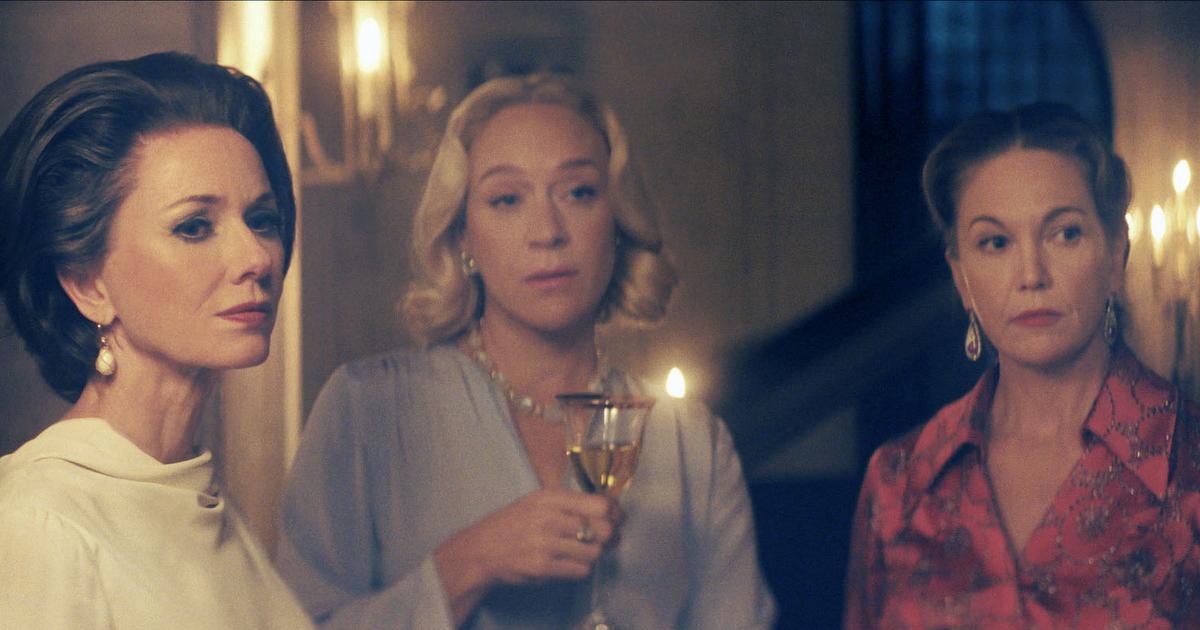Master of the anthology, the prolific Ryan Murphy
(American Horror Story)
brings to life with
Feud
the enmities that have marked pop culture.
In 2017, he examined the rivalry between actresses Bette Davis and Joan Crawford.
Seven years later, he returned with a new quarrel: the one that pitted the writer Truman Capote against New York society.
The author of
In Cold Blood
had been adopted by the most powerful women in the Big Apple.
Invited to their table, accompanying them on vacation, supporting them in the face of their unfaithful husbands.
This confidence was shattered in 1975 with the publication of one of his short stories,
La Côte basque
.
To discover
TV program this evening: our selection of the day
Of these socialites, whom he calls his
“swans”
, he reveals the secrets of their alcoves and their states of mind in this devastating text.
It's not just idle gossip.
Some statements amount to defamation.
This will lead to the suicide of one of Truman Capote's muses whom he portrays as a murderer.
Betrayed, the rest of the clique of his benefactors decides to ostracize the homosexual novelist.
Loneliness and stigma will only accentuate his addictions and his depression.
As with each of his productions, Ryan Murphy does not shy away from the opulence and decadence of these happy people of the world.
The boudoirs and private lounges of restaurants are exquisite and oppressive.
The camera captures a human comedy, a vestige of a golden era that unknowingly burns with its last fires.
With panache, the saga reconstructs pieces of bravery, which have gone down in history like the famous “black and white” masked ball organized in 1966 by the writer.
Truman Capote brought together 540 guests from the political and artistic elite of the time.
An entire episode, shot like a documentary, is devoted to these feasts.
Chic and toc show
This flashy setting,
Mad Men
style , dazzles all the more as it brings together a majestic cast to portray these wounded women: Naomi Watts, Diane Lane, Demi Moore and Calista Flockhart.
The star of
Ally McBeal
plays Jackie Kennedy's younger sister, the jealous Lee Radziwill.
In the guise of Barbara Paley, the scorned wife of the boss of the CBS channel who is fighting terminal cancer and inspired the novelist to write the heroine of
Breakfast at Tiffany's
, Naomi Watts is particularly poignant.
Tom Hollander is a Capote more true and pathetic than life: high-pitched and unctuous voice.
Still performing.
A court jester in perpetual search of witticism.
The consequences don't matter, as long as the good word hits the heart.
This is also the limit of this chic and OCD show.
Feud: The Betrayals of Truman Capote
lacks the provocative humor so dear to Ryan Murphy.
The whole thing remains on the surface, wallowing in gratuitous, sometimes misogynistic cruelty.
In two episodes, the series, co-directed with great care by filmmaker Gus Van Sant, Palme d'Or and Best Director Award at the 56th Cannes Film Festival for
Elephant
, has already said everything about the vacuity of its characters.
Executioners and victims in equal measure.

